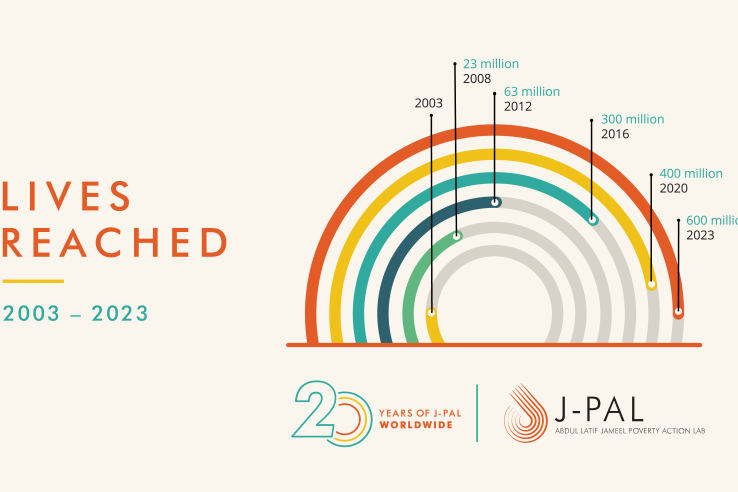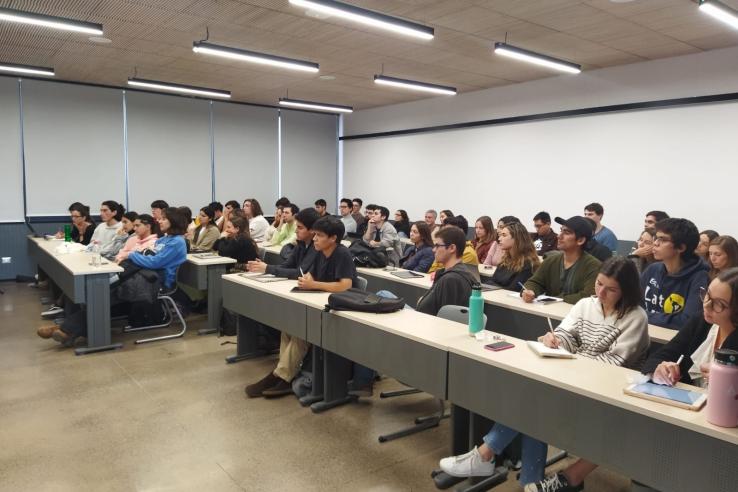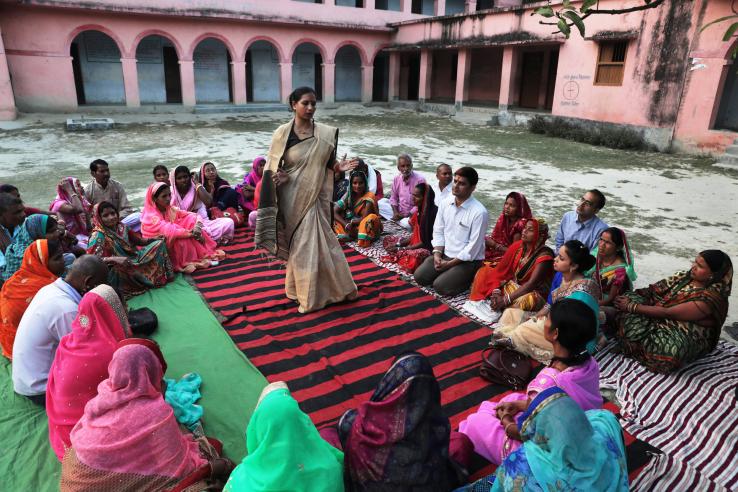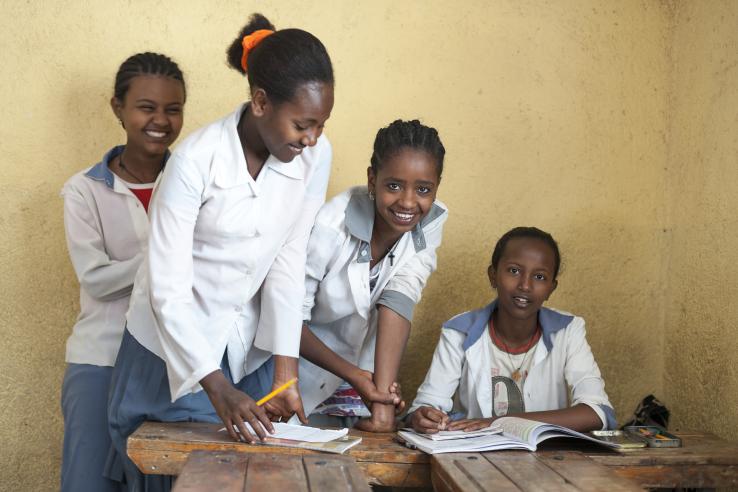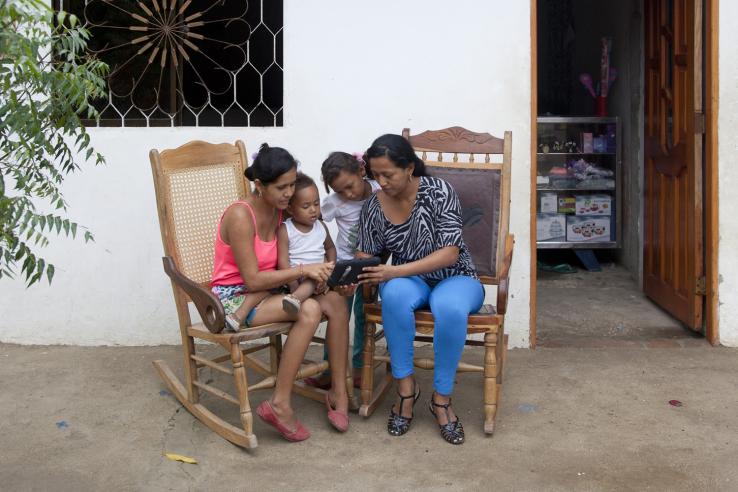Displaying 3331 - 3345 of 8489
Person
Resource
Layout Page
J-PAL was founded in 2003 at the Massachusetts Institute of Technology by Abhijit Banerjee, Esther Duflo, and Sendhil Mullainathan with a mission to alleviate poverty using rigorous evidence. As of 2024, 600 million people have been reached by programs and policies that have been informed by...
Update
J-PAL Updates
J-PAL North America's September newsletter features our 10-year anniversary: highlights from our two-day convening, a new impact webpage and blog series, and our inaugural Evidence Champions.
Event
In celebration of J-PAL's 20th anniversary, we warmly welcome you to a day-long event that will bring together government and NGO partners, funders, researchers, and our leadership team from around the world to discuss pressing challenges facing social policy and international development and chart...
Blog
In this spotlight, we speak with Nneka Esther Osadolor, a PhD candidate in economics at the University of Ibadan, Nigeria. Nneka’s primary research interests are broadly in development economics and applied microeconomics, including labor markets, financial inclusion, poverty, inequality, and gender...
Blog
While a null result is likely not what you were hoping for, and while null results can (unfortunately) be more difficult to publish, they can spur just as important insights and policy implications as significant results. However, to learn from a null result, it is necessary to understand the why...
Blog
This is the third blog in a series illustrating stories of how J-PAL’s training courses have built new policy and research partnerships and strengthened existing ones to advance evidence-informed decision-making. The first blog in the series highlights two meaningful examples from J-PAL’s Evaluating...
Blog
While many tend to associate economics primarily with careers in investments and banking, development economics offers an alternative avenue that may be worth exploring. To help broaden this general perception, J-PAL Latin America and the Caribbean (LAC) recently held two events at partner...
Resource
Layout Page
Blog
A new J-PAL evidence wrap-up highlights three randomized evaluations that consider the spillover effects of three health care interventions. In this post, we discuss what spillover effects are, a summary of the highlighted studies highlighted, and the benefits to policymakers in considering...
Person
Blog
Girls’ education remains a global priority for donors and governments. Many researchers suggest that the research community should coalesce around a set of coherent research priorities to help close gender gaps in education. This article outlines some crucial next steps to advance the research...
Resource
Basic page
